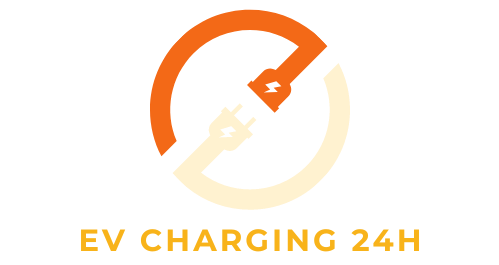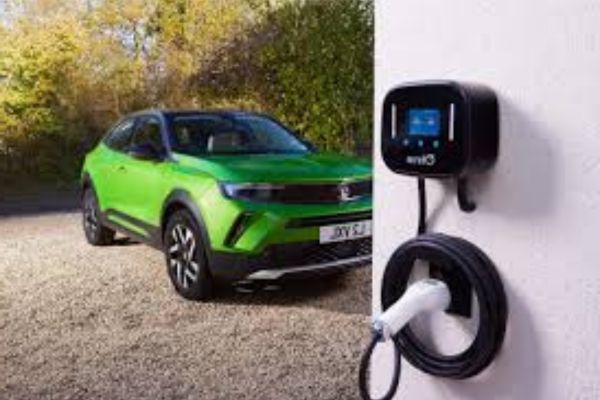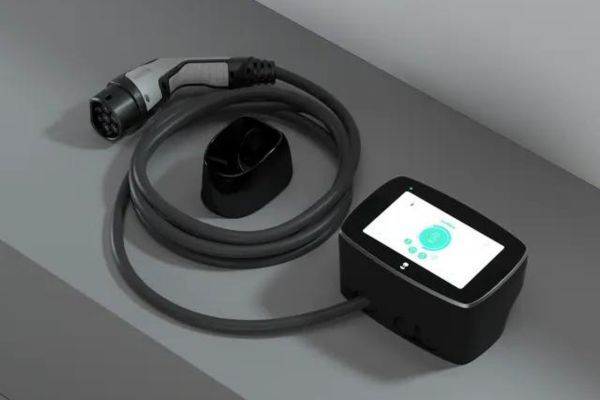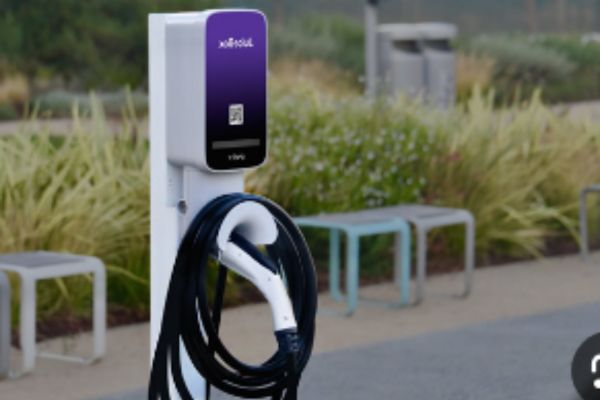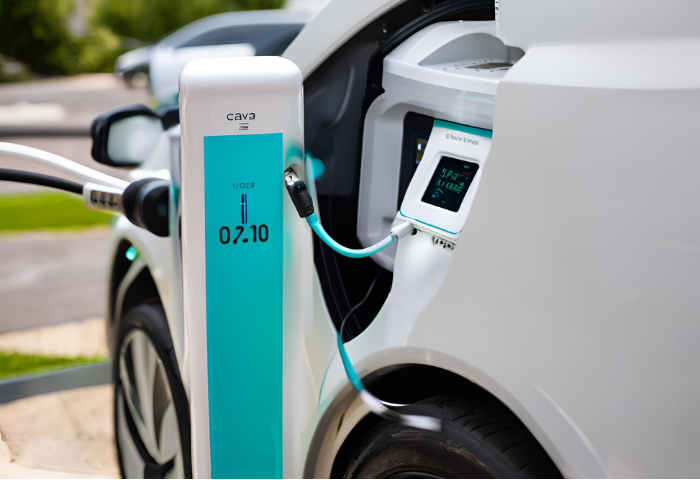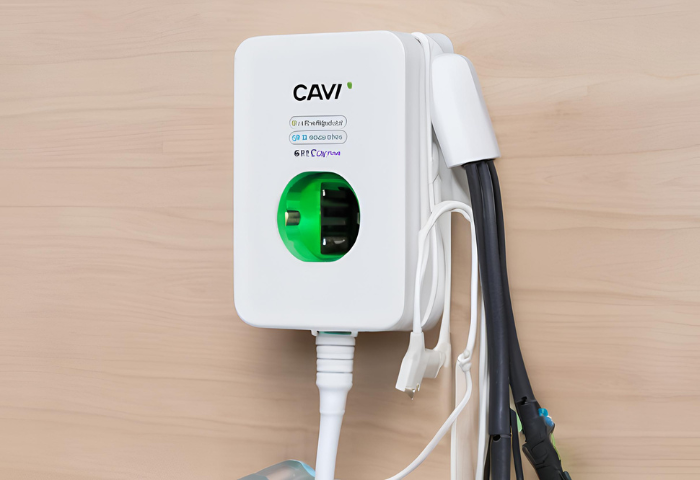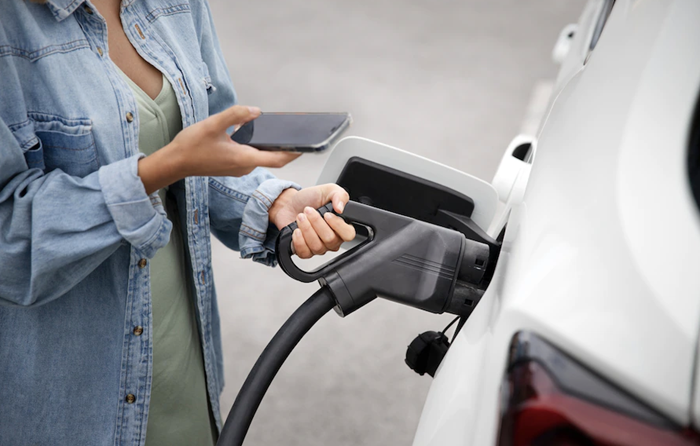Transform your EV charging with the Octopus Smart Charger.
The Octopus Smart EV Charger is revolutionizing the way electric vehicle owners power up their rides. Combining cutting-edge technology with user-friendly features, this charger offers fast, efficient, and reliable charging for all EV models. With intelligent scheduling and energy management, the Octopus Smart EV Charger not only saves time but also reduces electricity costs, making it an essential addition for any eco-conscious driver.
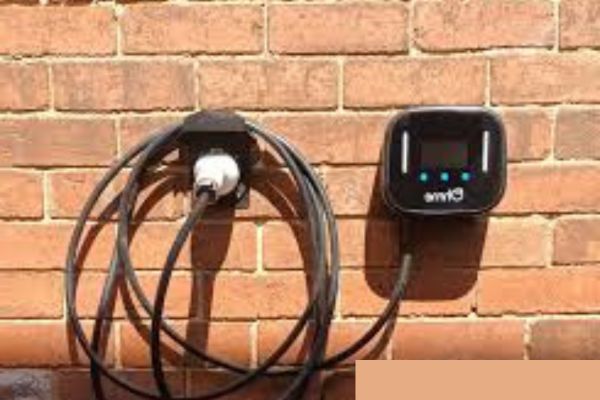
Introduction
Overview of Octopus Energy
Octopus Energy is a prominent energy provider known for its dedication to sustainable and innovative energy solutions. Since its inception, Octopus Energy has focused on making renewable energy more accessible and affordable for consumers. With a customer-centric approach and a strong emphasis on technology, Octopus Energy aims to revolutionize the energy sector by promoting green energy practices and efficient energy use.
EV chargers play a crucial role in the switch to sustainable energy sources.
With the global energy transition underway, electric vehicles (EVs) are essential for cutting carbon emissions and minimizing reliance on fossil fuels.
During this transition, dependable and efficient EV chargers are crucial because they offer the infrastructure needed to accommodate the increasing number of electric cars on the road. EV chargers promote the use of electric vehicles by making charging quick and easy, which accelerates the transition to a cleaner, greener future.
A Brief Introduction to Octopus Energy’s Innovations in the Energy Sector
Octopus Energy is at the forefront of energy innovation, continually developing new technologies and solutions to enhance energy efficiency and sustainability. Their smart grid technology, dynamic pricing models, and commitment to renewable energy sources exemplify their innovative approach.
One of their standout innovations is the Octopus Smart EV Charger, which integrates advanced features to provide efficient, cost-effective, and user-friendly charging solutions for electric vehicle owners. This cutting-edge charger represents Octopus Energy’s dedication to driving the global transition to sustainable energy.
Choosing Your Octopus Smart EV Charger
Selecting the Right Charger: An explanation of the different models available and guidance on selecting the best one for specific needs.
Compatibility Features
- We have integrated with Intelligent Octopus to enable smarter and cost-effective charging.
- The system is compatible with both smart home systems and renewable energy sources.
Installation and Setup
The standard installation process
What a ‘Standard Installation’ Entails and How to Prepare for It
- Site Assessment: We perform a site assessment prior to installation to identify the best location for the charger. This typically entails checking your EV parking spot’s proximity and the availability of a power source.
- Power Supply Check: Ensure your electrical system can support the charger. Most EV chargers require a dedicated circuit, and it’s important to verify that your home’s electrical panel has sufficient capacity.
- Mounting the charger: We mount the charger on a wall or a stand close to the parking area. The mounting process includes drilling holes and securing the charger with bolts and screws.
- Electrical Wiring: Run the necessary wiring from the electrical panel to the charger location. This includes installing a circuit breaker specifically for the EV charger.
- Connecting the Charger: Make sure all connections are secure and properly insulated before connecting the charger to the electrical wiring.
- Testing the Installation: We test the charger after the physical installation to make sure it’s operating correctly. This includes verifying the electrical connections and testing the charging process with an EV.
Preparation Tips
- Clear the installation area of any obstructions.
- Ensure easy access to your electrical panel.
- If your charger requires a network connection, have your Wi-Fi credentials ready.
Advanced Installation Considerations
Requirements for Remote Surveys, DNO Notifications, and Permits
Remote surveys may be required for complex installations. This entails providing the installer with photographs and descriptions of your electrical setup and installation site.
DNO Notifications: In some regions, you must notify the Distribution Network Operator (DNO) before installing an EV charger. This is necessary if the installation will significantly increase the electrical load on the grid.
Permits: Depending on local regulations, you may need permits for the installation. This can include electrical permits and building permits, particularly if the installation involves significant electrical work or modifications to your property.
Observing safety standards and adhering to regulatory requirements is crucial.
- Electrical Code Compliance: Ensure that the installation complies with local and national electrical codes. This includes using the appropriate wiring, circuit breakers, and ensuring all connections are up to standard.
- Safety Features: The EV charger should include safety features such as ground fault protection, overcurrent protection, and emergency shutoff capabilities.
- Professional Installation: Always have a certified electrician with EV charger experience install your charger. This ensures the installation meets all safety and regulatory requirements.
- After installation, a safety inspection should be conducted to ensure everything is correctly installed and operational. Your local regulatory body may mandate this.
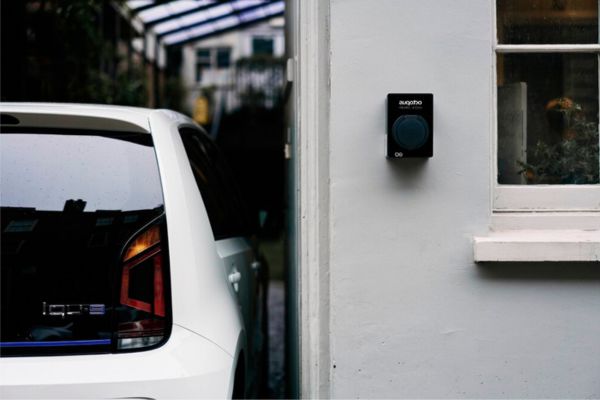
Intelligent Octopus: Smart Charging for a Smarter Future
Octopus Energy’s Intelligent Octopus is a revolutionary EV charging solution designed to optimize costs, convenience, and environmental impact. Here’s a breakdown of its key features:
Smart charging benefits
- Save Money: Intelligent Octopus utilizes time-based charging, prioritizing charging during off-peak hours when electricity rates are lower. This can significantly reduce your overall EV charging costs.
- Greener Grid: By charging your EV during off-peak hours, you’re more likely to be using electricity generated from renewable sources like wind or solar. This helps reduce your environmental footprint and contribute to a cleaner grid.
- Battery Care: Intelligent Octopus can automatically adjust charging rates to optimize battery health and extend its lifespan.
- Seamless Charging: Enjoy a hands-free charging experience. Simply set your desired charge level and departure time in the app, and Intelligent Octopus will handle the rest.
Octopus App Functionality
The user-friendly Octopus app puts you in complete control of your EV charging experience.
- Real-time Monitoring: Keep track of your EV’s charging status in real-time to always know how much charge you have and how long it will take to fully charge.
- Schedule charging sessions for times that best suit your needs and take advantage of off-peak rates.
- Energy Consumption Tracking: Gain insights into your EV’s energy consumption and identify opportunities to further optimize your charging habits.
- Live Energy Prices: To make informed charging decisions and maximize cost savings, view real-time energy prices.
- Notifications: Receive alerts when your charging session is complete or if there are any interruptions.
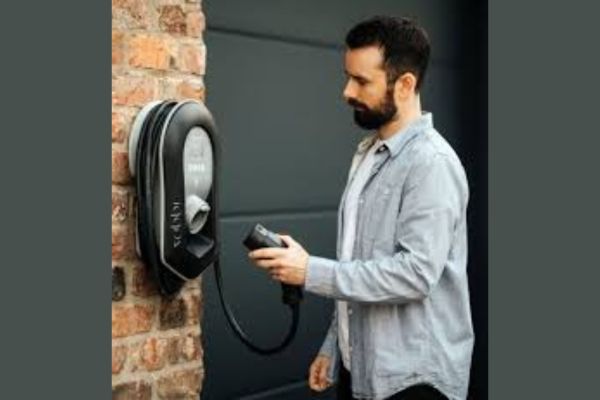
Charging Your EV with Octopus Energy: At Home and On the Go
How to Effectively Charge at Home
Charging an electric vehicle (EV) at home with Octopus Energy is straightforward and efficient, especially if you are using their smart energy tariffs designed for EV owners. With Octopus Energy, here’s how to maximize your home charging:
- Install a Home Charger: Choose a smart charger compatible with Octopus’s dynamic tariff. Professional installation can guarantee safety and compliance.
- Choose the Right Tariff: Octopus offers specific tariffs, such as Octopus Go, which provides cheaper electricity rates during off-peak hours (typically 12:30 a.m. to 4:30 a.m.), making it ideal for EV charging.
- Use a smart charger that has the ability to automatically charge during off-peak hours. This not only saves money but also reduces the grid’s load during high-demand periods.
Utilizing Octopus Electroverse for Public Charging
For on-the-go charging, Octopus Energy users can access the Electroverse network, which provides convenient public charging options. Here’s how to make the most of it:
- Electroverse App: Download the Electroverse app to find available charging stations, check real-time availability, and start charging sessions.
- RFID Card or App: To activate the charge point, use an RFID card or an app. You can also use the app to pay for charging, track usage, and manage billing.
- Opt for Fast Chargers: When traveling longer distances, look for DC fast chargers available in the Electroverse network to minimize charging time.
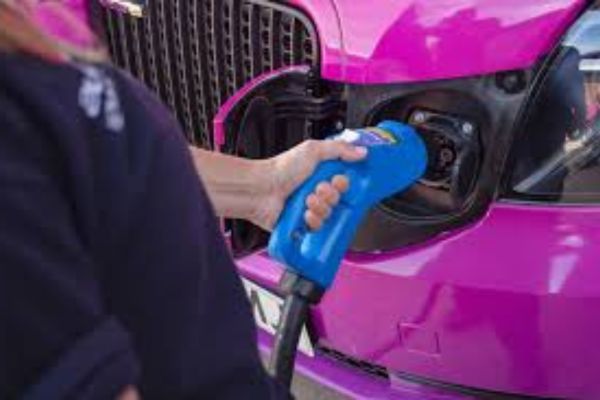
Cost Analysis: Home Charging Costs vs. Public Networks
Home Charging Costs with Octopus Energy
Home charging is generally more cost-effective compared to public networks, especially with Octopus Energy’s EV-specific tariffs. For instance, with the Octopus Go tariff, users can charge their EV for only 7.5 p/kWh during off-peak hours. This can lead to significant savings, especially for users who charge their EV overnight.
Example Cost Analysis for Home Charging:
- Let’s assume that an EV with a 60 kWh battery has reached full charge from its empty state:
- At 7.5p/kWh during off-peak hours, a full charge would cost only £4.50.
The costs associated with public charging on networks like Octopus Electroverse are significant.
Public charging costs can vary widely based on the location, the network, and the type of charger (AC slow/fast or DC rapid). While Octopus Electroverse aims to offer competitive rates, public charging typically costs more per kWh compared to home charging.
- Cost at Public Chargers: Prices may range from approximately 20 p/kWh for slower AC charging to around 40 p/kWh for faster DC charging.
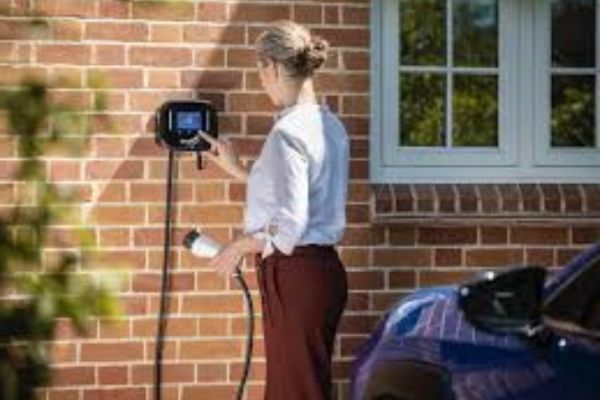
Technical Specifications and Requirements
Charger types and technical requirements
What are the differences and benefits between tethered and untethered cables?
| Feature | Tethered Cable | Untethered Cable |
| Convenience | Cables are always available and easy to use. | It requires a manual connection for each use. |
| Cable Management | There is no need to store or handle them separately. | Requires storage and handling. |
| Flexibility | The cable length is limited. | It is adaptable to different parking positions and EVs. |
| Compatibility | The charger’s connector type is limited. | It is compatible with various EV connectors (with different cables). |
Various charger types
- Type 1: Commonly used in older models of EVs, as well as in regions such as North America and parts of Asia. It provides a single-phase connection that can deliver up to 7.4 kW of power.
- Type 2: The most common standard in Europe, capable of both single and three-phase charging. Type 2 connectors can handle up to 22 kW in domestic installations and significantly more in commercial settings, making them versatile for both home and public use.
- CCS (Combined Charging System): supports both AC and DC charging, making it ideal for fast-charging applications. CCS connectors are becoming the standard for new EV models in Europe and the United States, offering high-speed charging capabilities that can add significant range in short periods of time.
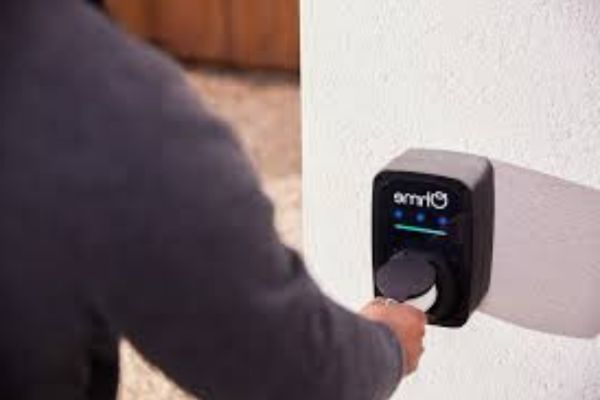
Installation and maintenance
This section contains information on maintaining the charger and troubleshooting common issues.
Maintenance Tips
- Regular Inspections: Conduct periodic inspections to ensure the charger and its components, including cables and connectors, are in good condition.
- Clean Connections: Keep the plug and socket clean and dry to prevent charging interruptions and potential safety hazards.
- Firmware Updates: Update the charger’s firmware as recommended by the manufacturer to ensure optimal performance and access to new features.
Troubleshooting common issues
Charger Not Powering Up:
- Check if the charger’s power supply is intact and the circuit breaker has not tripped.
- Verify the security of all connections and the correct mounting of the charger.
Charging Interruptions:
- Inspect the cable connections to see if there are any signs of damage or improper connections.
- Reset the charger if necessary, and check the vehicle’s charging port for obstructions or debris.
Error Codes:
- Refer to the user manual for specific error codes and their meanings.
- Contact customer support for detailed troubleshooting steps or to schedule a repair.
Slow Charging:
- Make sure you select the correct charging mode based on the specifications of your vehicle.
- Check for external factors, such as extreme temperatures, that might affect charging speeds.
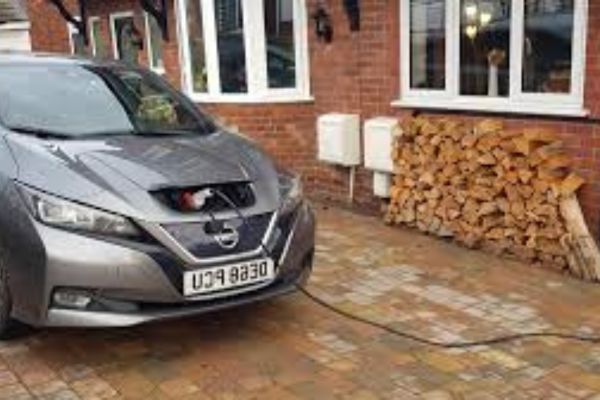
The incentives and environmental impact of using EV chargers are worth considering.
Government and local incentives
Governments and local authorities around the world offer various financial incentives to promote the adoption of electric vehicles (EVs) and the installation of EV chargers. These incentives aim to increase the affordability and attractiveness of EVs and their necessary infrastructure for a wider audience. Common incentives include:
- Rebates and Grants: These may cover a significant portion of the upfront costs associated with purchasing and installing an EV charger at home or on business premises.
- Tax Credits: Some regions offer tax credits for EV purchases and charger installations, which can reduce the amount of income tax that individuals or businesses owe.
- Reduced Tariffs: Special electricity tariffs for EV charging can significantly lower the cost of charging at home, especially during off-peak hours.
- Local Benefits: The incentive package may include additional perks such as reduced registration fees, exemption from tolls, and access to carpool lanes.
These incentives not only help reduce the initial financial burden but also encourage a shift towards more sustainable transportation solutions.
Sustainability and environmental benefits
Using an EV charger, especially when combined with renewable energy sources, has significant environmental benefits, contributing to the reduction of the overall carbon footprint.
- Reduced greenhouse gas emissions: EVs charged from the grid, particularly in regions where electricity is generated from renewable sources, have a much lower carbon footprint compared to internal combustion engine vehicles.
- Improved Air Quality: EVs emit no tailpipe pollutants, so they contribute to better local air quality, reducing pollution-related health problems.
- Energy Efficiency: EVs are generally more energy-efficient than traditional vehicles. Smart chargers that optimize charging schedules based on energy demand and supply can further enhance efficiency.
- Support for Renewable Energy Integration: By programming smart EV chargers to charge with renewable energy when it’s most available (for instance, during peak solar production hours), we can encourage the use of renewable energy sources and contribute to grid balancing.
Customer experiences and services
Customer Testimonials and Case Studies
- We present real-life stories from customers who have benefited from using Octopus EV chargers.
- Sarah from London shares, “Switching to an Octopus EV charger has transformed my daily routine.” The Intelligent Octopus feature automatically charges my EV overnight when rates are lowest, significantly reducing my monthly expenses. I haven’t had to change my routine; my car is always ready and charged by morning.”
- The Family’s Sustainable Shift: The Johnson Family in Manchester reports, “We wanted to reduce our carbon footprint and decided to start with how we fuel our vehicle.”The Octopus charger not only uses greener energy, but it also integrates with our solar panels, maximizing our renewable usage. It’s been a crucial part of our journey towards sustainability.”
- The Business Upgrade: A tech startup in Birmingham found that installing Octopus EV chargers at their workplace increased employee satisfaction and company appeal. Their CEO notes, “Providing EV charging on-site has made a significant difference in attracting eco-conscious talent and visibly supporting our commitment to green practices.”
Excellence in customer service
- Highlighting Octopus Energy’s Commitment to Customer Support and Service, Backed by Customer Satisfaction Ratings
- Responsive Support: Octopus Energy is renowned for its proactive customer service. Customers such as Emily from Bristol emphasize that Octopus Energy promptly and efficiently addresses any queries they have. It’s refreshing to deal with a company that genuinely cares.”
- High Satisfaction Ratings: With consistently high ratings across various consumer platforms, Octopus Energy stands out in the energy sector. Reviews often point to the ease of use of their services, transparent pricing, and the friendly, helpful nature of their customer support team.
- Ongoing Engagement: Octopus doesn’t just install a charger and move on; they engage with customers to ensure their ongoing satisfaction. Mark from Edinburgh notes, “Octopus regularly checks in to ensure the charger is working optimally and to share tips on how to get the most out of my setup.”
- Educational Resources: Recognizing the importance of informed customers, Octopus provides extensive educational materials. These include user guides, FAQ sections, and instructional videos that help users understand their EV charger better and troubleshoot minor issues themselves.
- Community Initiatives: Octopus Energy fosters a sense of community among its users by hosting webinars, workshops, and online forums where users can share tips, experiences, and best practices. This community support not only enhances customer satisfaction but also empowers users to make the most of their EV charging solutions.
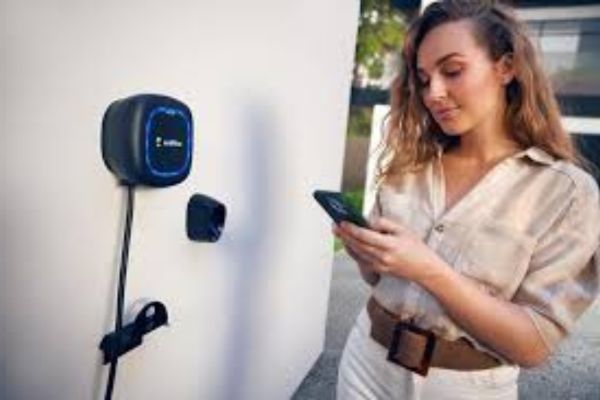
Additional resources and information for Octopus EV chargers are available.
FAQs and Technical Support
Octopus Energy provides extensive resources to help EV owners get the most out of their charging experience. Here are the ways to access these resources:
- FAQs: The Octopus website features a comprehensive FAQ section specifically dedicated to EV charging. This section addresses common questions related to installation, costs, usage, and troubleshooting of EV chargers.
- Technical Support: Octopus Energy has a dedicated support team for more specific inquiries or issues.
- Phone Support: Customers can call the Octopus Energy support line for immediate assistance with any technical issues or questions.
- Email Support: For less urgent support needs, emailing the technical support team is a convenient option. Customers can expect detailed responses tailored to their queries.
- Many users find live chat helpful for real-time problem-solving and quick advice.
Octopus encourages customers to get in touch with any issues or questions they might have, ensuring they have all the support needed to facilitate a smooth and efficient EV charging experience.
Future developments and innovations
Octopus Energy is continuously innovating to improve its EV charging solutions. Insights into potential future developments include:
- Integration with Smart Home Systems: Future upgrades may focus on better integration with home energy management systems, allowing users to control their EV chargers via smart home platforms like Google Home or Amazon Alexa.
- Enhanced Charging Technology: Upcoming features might include more advanced fast-charging technologies that reduce charging time significantly, making EV charging even more convenient.
- Renewable Energy Optimization: Octopus is likely to enhance features that further optimize charging based on renewable energy availability. This could entail a dynamic charging rate adjustment based on a real-time analysis of grid demand and renewable supply.
- Machine Learning Algorithms: Future innovations may leverage machine learning to predict the best times for charging based on usage patterns, weather conditions, and electricity prices, thus enhancing efficiency and user convenience.
Octopus Energy remains committed to leading the charge in sustainable energy solutions. Their ongoing research and development in the field of EV charging promises to bring forward new technologies and features that will continue to improve EV charging’s efficiency, convenience, and environmental impact.
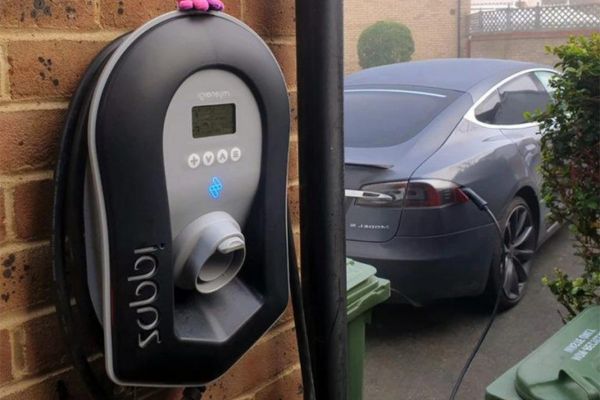
Conclusion: Benefits of Choosing Octopus Energy for EV Charging
Summary of Benefits
Octopus Energy provides a compelling array of benefits for electric vehicle (EV) owners looking to enhance their charging experience. With innovative tariffs like Octopus Go, which offers reduced rates during off-peak hours, users can enjoy significant cost savings while charging their EVs.
The integration of smart technology allows for seamless management of charging schedules, ensuring efficiency and convenience. Moreover, Octopus’s commitment to sustainability is evident in its support for renewable energy sources and advanced energy management solutions that help minimize environmental impact.
Key Advantages
- Cost-Effective Charging Solutions: With special rates that encourage off-peak charging, Octopus Energy’s tariffs make EV charging both affordable and convenient.
- Smart Technology Integration: Users gain enhanced control over their charging with features that allow for remote monitoring and scheduling via user-friendly apps.
- Sustainable Practices: By prioritizing renewable energy and offering innovative products like the Octopus Electroverse for public charging, Octopus Energy supports a more sustainable future.
- Comprehensive Support: Octopus provides robust customer support and a wealth of online resources, including FAQs and technical assistance, to ensure a smooth user experience.
Call to Action
For those seeking a reliable, efficient, and environmentally friendly EV charging solution, consider Octopus Energy. Whether you’re charging at home or on the go, Octopus Energy offers the tools and support to make your experience as seamless as possible.
Embrace the future of driving with Octopus Energy’s smart and sustainable charging solutions. Start your journey to smarter EV charging today by visiting their website to learn more about their offerings or contacting their customer service.

Henry Michael is a leading expert in EV charging station research, specializing in innovative solutions for electric vehicle infrastructure. With a passion for sustainability and technological advancement, he is dedicated to advancing the accessibility and efficiency of EV charging worldwide.
